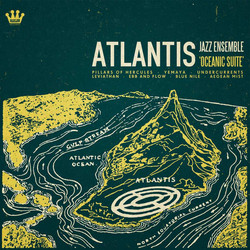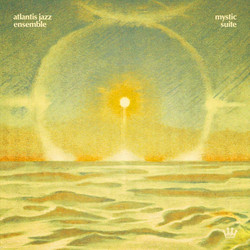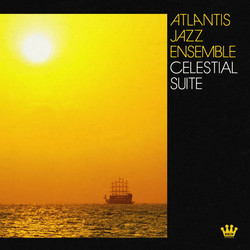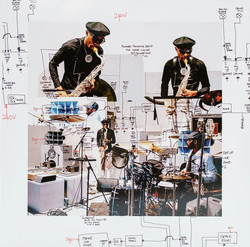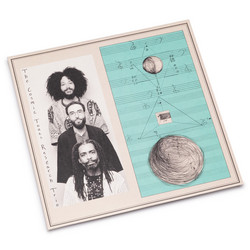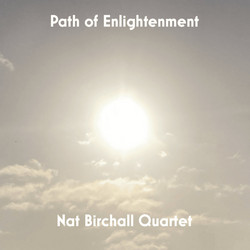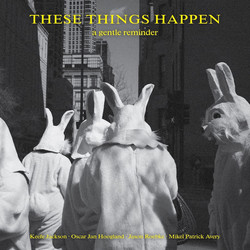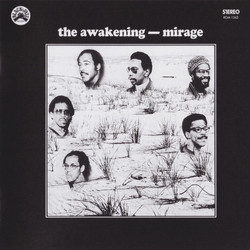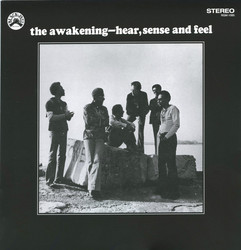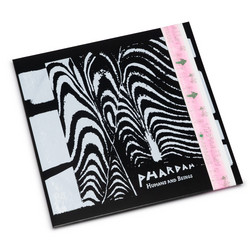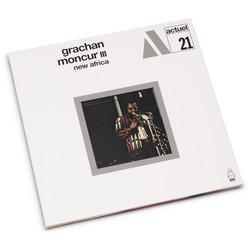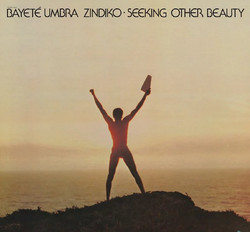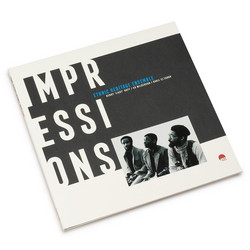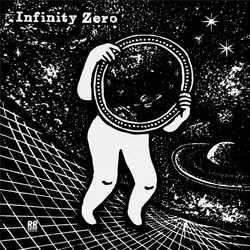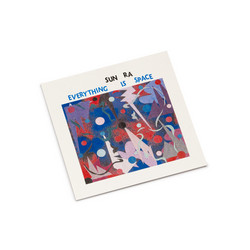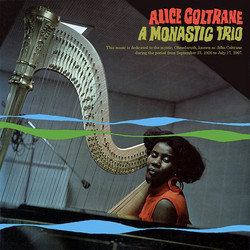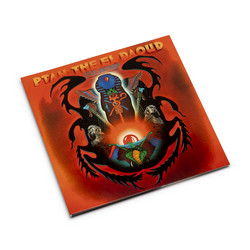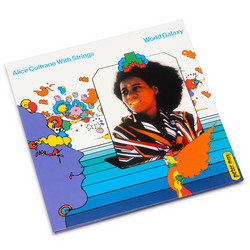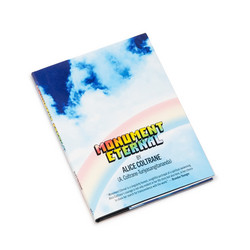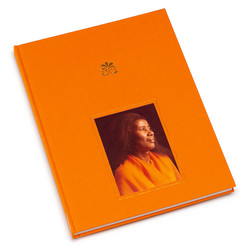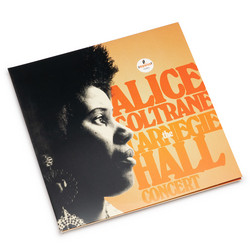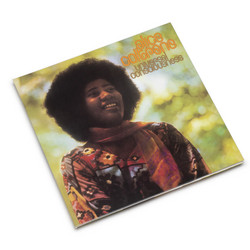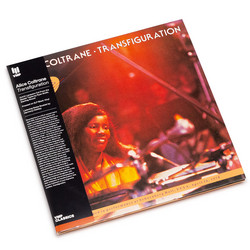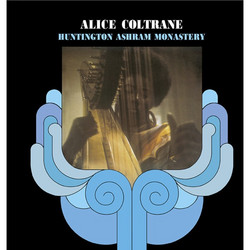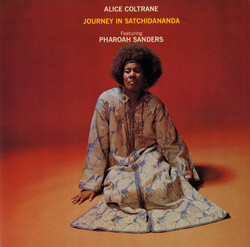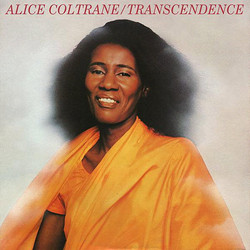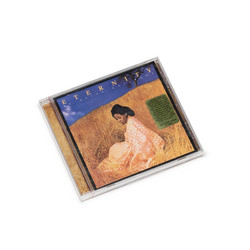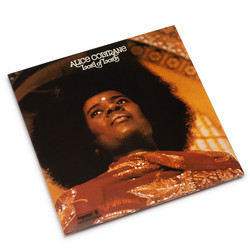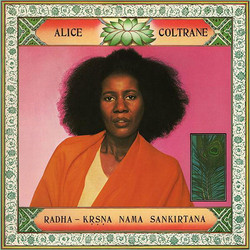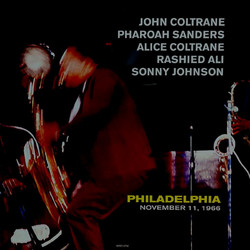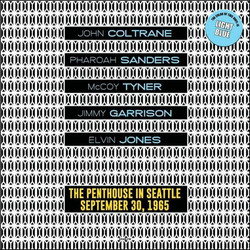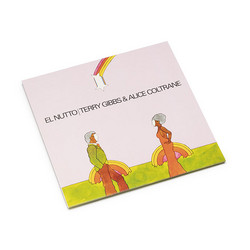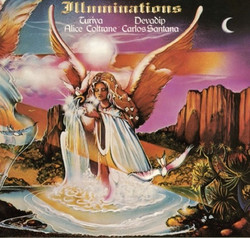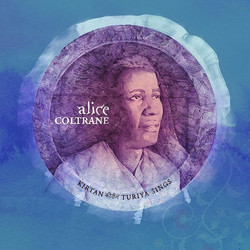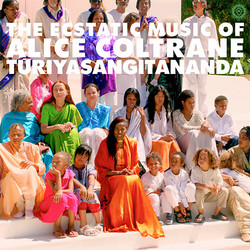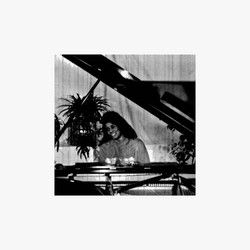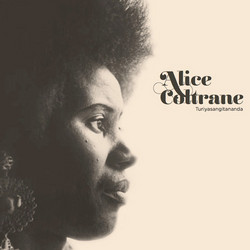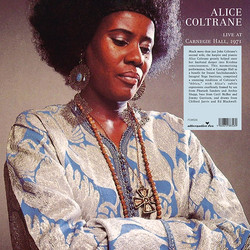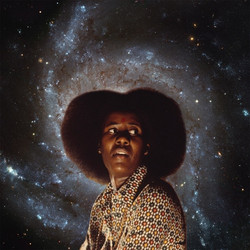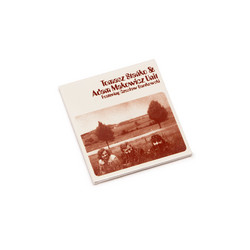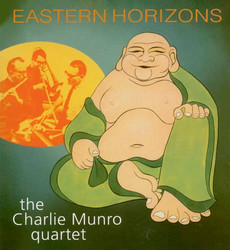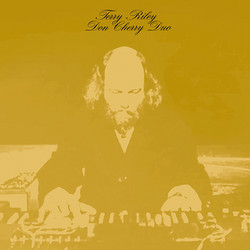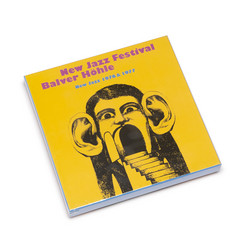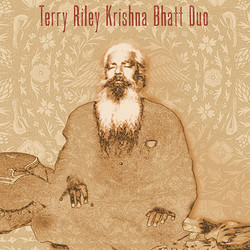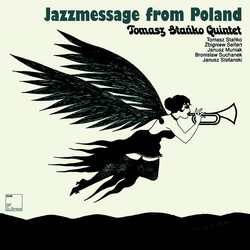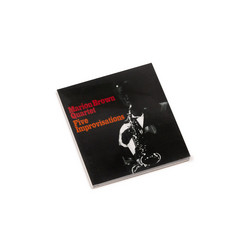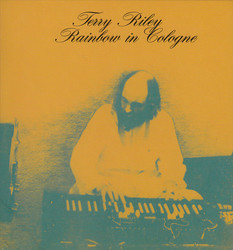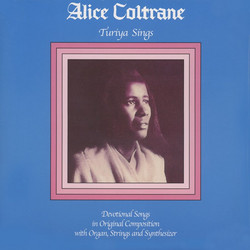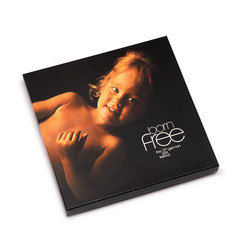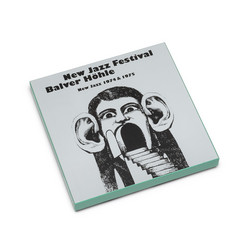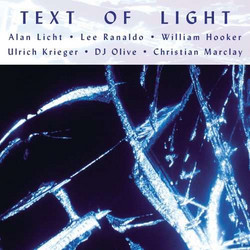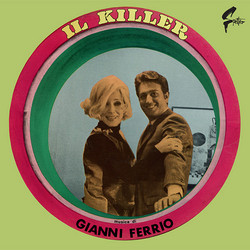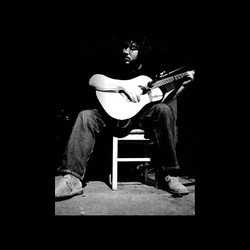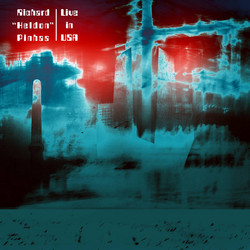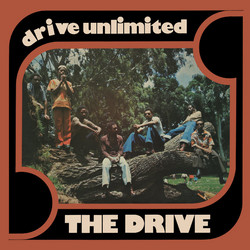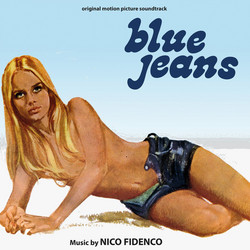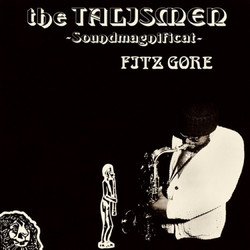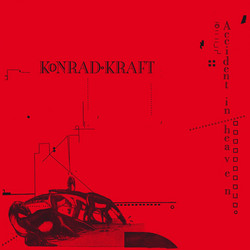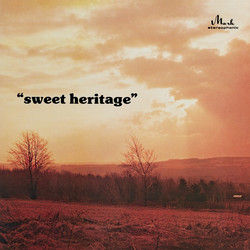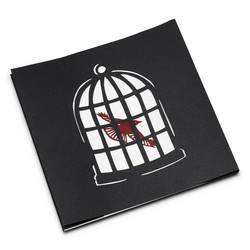Alice Coltrane
Turiya Sings
CD version. “Divine music is a curative virtue; it is a gift from God that brings healing and comfort to the soul. This music can uplift one’s spirit up to a higher dimension of being that is filled with peace and joy. Divine music is the sound of true life, wisdom, and bliss. This music transcends geographical boundaries, language barriers, age factors; and whether educated or uneducated, it reaches deep into the heart and soul, sacred and holy, like an Infinite sound of glory entering the Lord’s sanctuary.” – Alice “Swamini Turiyasangitananda” Coltrane (1937 – 2007). Around 14 years ago, I first glimpsed Alice Coltrane on the cover of her 1972 album World Galaxy. She was wrapped in robes and framed by the psychedelic figures of artist Peter Max. From her radiant gaze I knew I had encountered a high spirit. When I dropped the needle and heard the music my world was blown apart. Between the newly shattered pieces Alice injected a shimmering light. Her string arrangements, lush and majestic, dissolved at points, giving way to intimate moments that burned and swung then swelled skyward again.
Alice’s early Impulse! Records output was jazz music infused with an air of the divine. She was paying tribute to and continuing the legacy of her departed husband John Coltrane while offering the world a glimpse of her blossoming spirituality. Her song titles alone let us know where her mind was: “Journey in Satchidananda,” “Galaxy in Turiya,” “Jaya Jaya Rama,” or simply “Mantra.” These were cosmic love songs, and although her great Earth lover was gone, her universal love was growing. Alice was a woman of constant transformation. She was born Alice McLeod, to became Alice Coltrane then eventually shed conventional names to become Swamini Turiyasangitananda (Sanskrit for “the highest song of God,”). Earlier on, Alice had embraced the teachings of the guru Sathya Sai Baba and shades of her spirituality were reflected on a string of gorgeous albums from the late 60’s through 1970’s on Impulse! and Warner Brothers. In 1983 she retreated from secular life altogether and founded the Vedantic Center Sai Anantam Ashram tucked deep into the Santa Monica Mountains bordering Los Angeles. Her musical output seemed to silence but in actuality the waves were building.
Turiya (Alice) had given up secular music to focus on pure devotion. Her songs of praise came in the form of Vedic Chants. These were not muted, whispered prayers. They were ecstatic praise in full swing. The sessions were released as worship tapes & cds available through her Ashram’s Avatar Book Institute: Turiya Sings (1982), Divine Songs (1987), Infinite Chants (1990), Glorious Chants (1995). They are a total revelation for any Alice Coltrane fan and a missing link of sorts in her musical story. These four albums are collections of purely devotional songs. The verses are Vedic Chants repeating the names of deities. These swirling, meditative mantras are sometimes sung solo with serene fragility by Turiya and at other times rise in magnificent, gospel-like form from the Ashram Singers. Throughout, the magic element is Turiya’s synthesizer, which dives, sweeps and rises like a million stars cradling all in ancient, blissful light. These are the tones of a luminous glow that is gentle but powerful. It is music made by a woman and her devotees who were in full, astonished love with the immense universe and the tranquility they found within it. Although these songs were cosmic in scope they have been largely unheard by the world. I hope you choose to explore further and even if the flames do overtake this music it will continue to ring on in your heart and beyond." (Mark “Frosty” McNeill)
